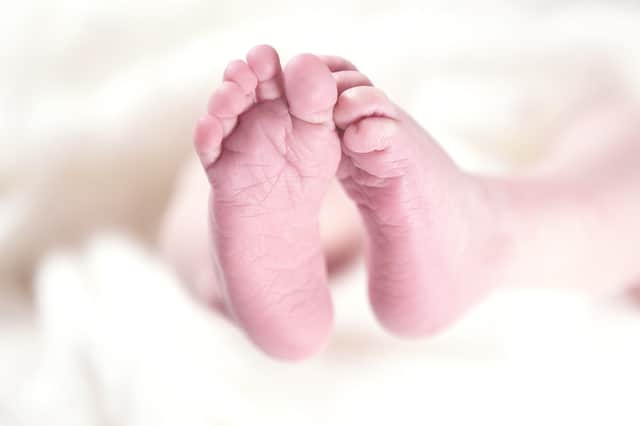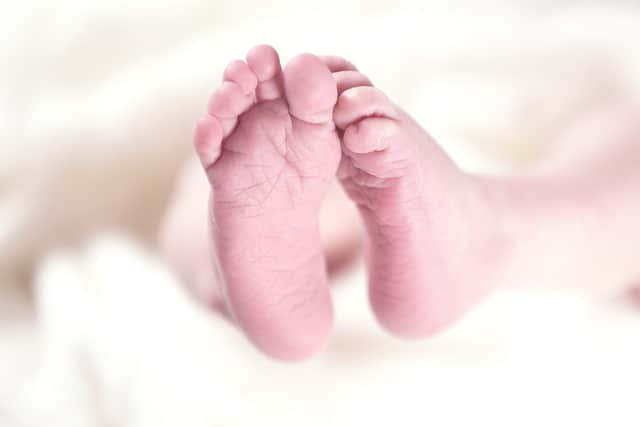First UK baby with DNA from three people born after new IVF procedure, confirms fertility regulator


A baby has been born using three people’s DNA in the UK for the first time. Most of the newborn’s DNA comes from their two parents and around 0.1 per cent from a third, donor woman.
It is hoped the technique could prevent children being born with mitochondrial diseases, which are incurable and can be fatal. No further details have been released, except that fewer than five such babies have been born so far.
Advertisement
Hide AdAdvertisement
Hide AdAccording to BBC News, some families have lost multiple children to mitochondrial diseases and this technique is seen as the only option for them to have a healthy child. Mitochondria are the tiny compartments inside nearly every cell of the body that convert food into useable energy.
Defective mitochondria cannot fuel the body which leads to devastating conditions such as brain damage, muscle wasting, heart failure and blindness. As they are passed down only by the mother of the baby, mitochondrial donation treatment is a modified form of IVF that uses mitochondria from a healthy donor egg.
But mitochondria have their own DNA which means that technically the resulting children inherit DNA from their parents as well as a little amount from the donor. This is a permanent change that would be passed down through the generations.
The donor DNA does not affect other traits such as the appearance of the child and is only relevant for making effective mitochondria. The donor DNA does also not constitute a “third parent”.
The new technique was pioneered in Newcastle and laws have since been passed that allow the creation of such babies in 2015. These details have emerged after a Freedom of Information request by the Guardian.
As of April 20 2023, The Human Fertilisation and Embryology Authority (the HFEA) is saying “less than five” such babies have been born. The authority is not giving precise numbers in order to protect the identities of the families involved.


As there has been no word from the teams in Newcastle, it is still uncertain whether or not the technique has been successful. However, it has been estimated that up to 150 such babies could eventually be born each year in the UK.
Professor Robin Lovell-Badge, from the Francis Crick Research Institute, said: “It will be interesting to know how well the mitochondrial replacement therapy technique worked at a practical level, whether the babies are free of mitochondrial disease, and whether there is any risk of them developing problems later in life.”
Comments
Want to join the conversation? Please or to comment on this article.
